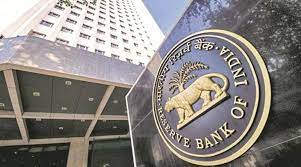HYDERABAD, June 13: All India Bank Officers’ Confederation (AIBOC) and All India Bank Employees’ Association (AIBEA), representing the collective voice of more than 6 lakh bank employees, vehemently criticised the recent move by the Reserve Bank of India (RBI) to allow Banks/lenders to settle loans of wilful defaulters under compromise settlement.
We view the recently released RBI’s “framework for compromise settlements and technical write-offs” as a detrimental step that may compromise the integrity of the banking system and undermine the efforts to combat wilful defaulters effectively.
In a joint release on Tuesday, AIBOC General Secretary Rupam Roy and AIBEA General Secretary C.H. Venkatachalam said, as key stakeholders in the banking industry, we have always advocated for strict measures to address the issue of wilful defaulters. We firmly believe that allowing compromise settlement for accounts classified as fraud or wilful defaulters is an affront to the principles of justice and accountability.
They said It not only rewards unscrupulous borrowers but also sends a distressing message to honest borrowers who strive to meet their financial obligations.
RBI in its ‘Prudential Framework for Resolution of Stressed Assets’ on (June 7, 2019), made it clear that the borrowers who have committed frauds/ malfeasance/ wilful default will remain ineligible for restructuring. Now this sudden change in the framework by the Central Bank to grant compromise settlements to wilful defaulters came as a shocker and it will not only lead to erosion of public trust in the banking sector but also undermines the confidence of depositors.
Mr Roy and Mr Venkatachalam said It fosters an environment where individuals and entities with the means to repay their debts choose to evade their responsibilities without facing appropriate consequences. Such leniency serves to perpetuate a culture of non-compliance and moral hazard, leaving banks and their employees bearing the brunt of the losses.
It is worth noting that wilful defaulters have a significant impact on the financial stability of banks and the overall economy. By allowing them to settle their loans under compromise, the RBI is essentially condoning their wrongful actions and placing the burden of their misdeeds on the shoulders of ordinary citizens and hardworking bank employees.
Moreover, as per the framework, the Bank Boards have been authorized to grant such leniency as they deem fit, for compromise settlements of wilful defaulters. The Standing Committee on Finance recommended in February 2016 for accountability of nominee Directors of RBI / Ministry on the Bank Boards as well as the CMDs / MDs of Banks.
The list of top wilful defaulter as suggested by the Standing Committee is yet to be published, they said It is pertinent to note that none of the Boards of these Banks have Employee/Officer Director appointed by the Government.
Despite the statutory & regulatory provisions, the Government is yet to appoint the Workmen & Officer Directors on Bank Boards. Many other vacancies in the Banks’ Boards are also kept unfilled. Are these crucial posts kept unfilled deliberately so that the truncated Boards can approve all these compromise proposals without any opposition?
The All-India Bank Officers’ Confederation and All-India Bank Employees Association call upon the RBI to review and withdraw this ill-advised decision and instead focus on implementing robust measures to hold wilful defaulters accountable for their actions.
RBI should make list of the wilful defaulters public, introduce stricter penalties, enhanced scrutiny, and a more proactive approach to identify and prevent potential defaulters.
Additionally, we urge the RBI to prioritize the protection of the interests of honest borrowers and depositors who rely on the integrity of the banking system. The banking sector plays a crucial role in the nation’s economic growth, and any compromise that undermines its stability and credibility is undesirable. (UNI)
Trending Now
E-Paper


